5999015045512
Price Quote Get an up to date pricing and availability quote for this product. Order online or over the phone.
Quality Commitment
Serving our customers with quality and safety first.
- AS9120 Certified
- Audited supply chain
- ITAR Registered
- DDTC Registered
- HAZMAT Certified
- Customer service objectives
- Every product 100% inspected

5999-01-504-5512 Specification Set by the OEM (see RNCC code 3)
square
1.500in. ⁓1-1/2"
0.190in.
1.300in.
1356-01-286-3559
rubber synthetic
MIL-R-6855 mil spec single material response
Cross Reference Parts Part numbers that meet the specification outlined on this page and set by the OEM
Identification Item Identification Guide (IIG) and Item Name Code (INC)
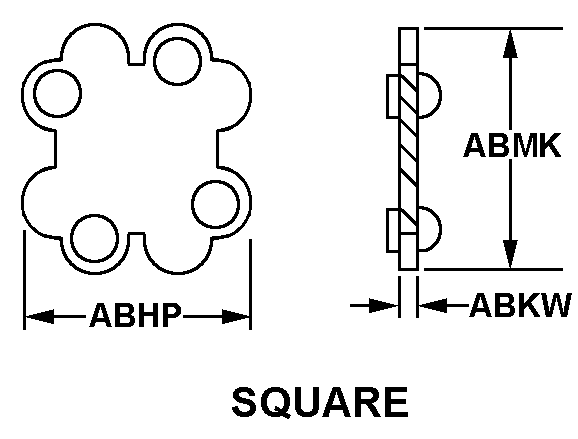
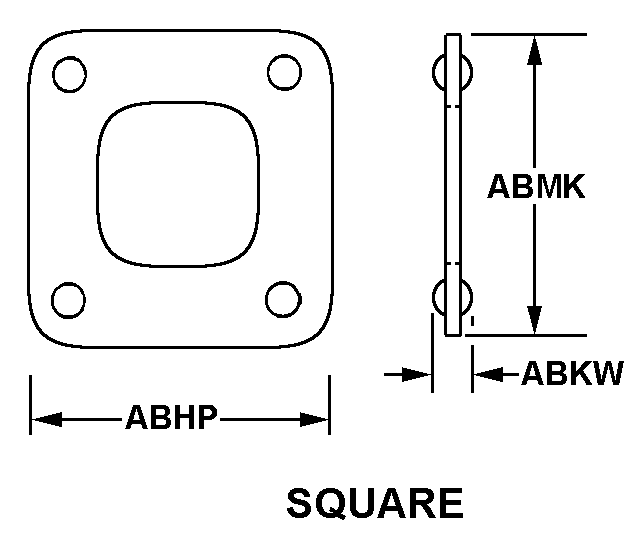
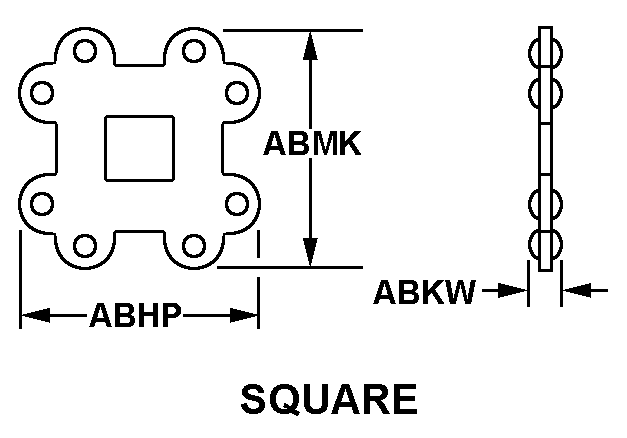
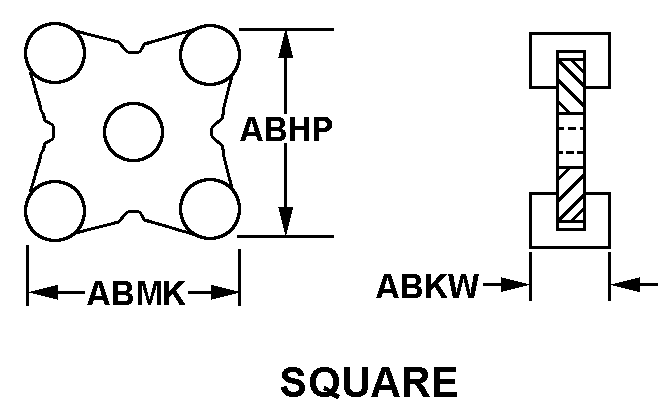
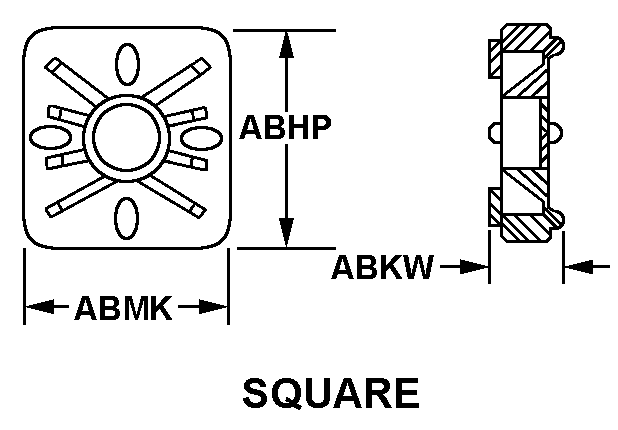
Definition Definition of approved item name (AIN): "MOUNTING PAD,ELECTRICAL-ELECTRON"
An item fabricated from electrically nonconductive material specifically designed to provide a support for mounting an electrical and/or an electronic component such as a semiconductor device, relay, or resistor into the next higher assembly. It isolates the component from the mounting surface of the next higher assembly, it may act as a strain relief to avoid damage to the component seal, and it may permit soldering of the component to the next higher assembly without damage. It includes holes, notches, or other provisions for physical alignment and spacing of electrical leads and/or other mounting facilities projecting from the component it mounts. It may also afford protection from shock or vibration. It may be either nonthermally conductive which protects the component from temperature changes in the next higher assembly or it may be thermally conductive which permits heat generated in the component to be drained out to a heat sink. For items whose function is electrical insulation only, see insulator, (as modified). Excludes holder, (as modified); retainer, (as modified), and spacer, plate.
5999-01-504-5512 Material Hazmat, Precious Metals, Criticality, Enviroment, and ESD
Indicates there is no information in the hmirs. The nsn is in a fsc in table ii of fed std 313 and a msds may be required by the user. The requirement for a msds is dependent on a hazard determination of the supplier or the intended end use of item.
Item does not contain precious metal.
No known electrostatic discharge (esd) or electromagnetic interference (emi) sensitivity.
Represents items with no adp components
The item does not have a nuclear hardened feature or any other critical feature such as tolerance, fit restriction or application.
Identification Codes
HMIC: Hazardous Material Indicator Code. A one position code that identifies a hazardous item.
PMIC: Precious Metal Indicator Code. A one position code which identifies items that have precious metals as part of their content. precious metals are those metals generally considered to be uncommon, highly valuable, and relatively superior in certain properties such as resistance to corrosion and electrical conductivity.
ESD: Electrostatic Discharge. Indicates if an item is susceptible to electrostatic discharge or electromagnetic interference damage. electrostatic discharge damage occurs when an accumulation of static electricity generated by the relative motion or separation of materials is released to another item by direct contact. electromagnetic interference damage occurs when an item comes into proximity with an electrostatic or magnetic field.
ENAC: Enviromental Attribute Code. Identifies items with environmentally preferred characteristics.
CRITL: Criticality Indicator Code. Indicates an item is technically critical by tolerance, fit, application, nuclear hardness properties, or other characteristics.






